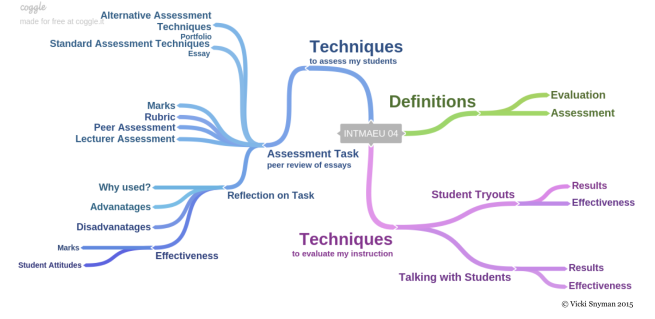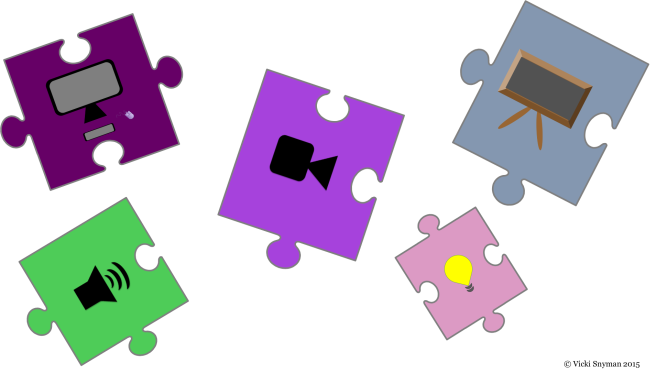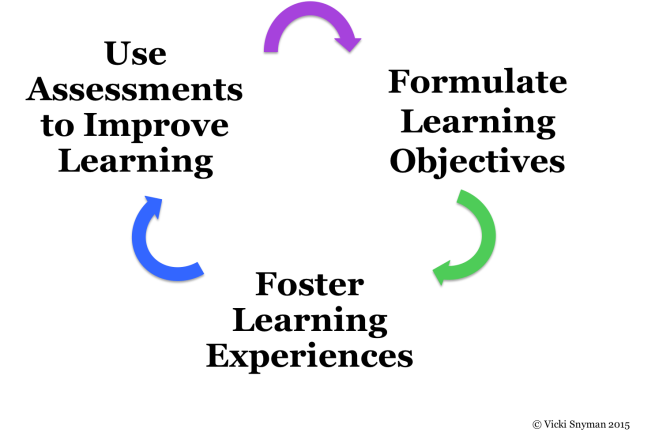Evaluation and assessment are crucial aspects of the teaching and learning process. I will begin by distinguishing between evaluation and assessment as defined by Newby, Stepich, Lehman, Russel and Ottenreit-Leftwich (2011) in Educational Technology for Teaching and Learning. Then I will discuss two techniques I have employed to evaluate my instruction, namely student tryouts and talking with students. Lastly, I will discuss a standard and an alternative assessment procedure. In this context, assessment of students is used as part of the process of evaluating materials, instruction, and curricula. I will demonstrate how evaluation aids in the process of ensuring that curricula, instruction, and decisions made in the lesson are sophisticated and well crafted.

Check out the reflection on this assignment.
Continue reading “Assessment Tools for Evaluating Instruction and Assessing Student Learning”




 Over the last year, I have been participating in online discussions as part of the Instructional Techniques and Media (INTMEAU) module of the Postgraduate Diploma in Tertiary Education (PDTE) I am in the process of completing. The discussions assignment has not been successful for a number of reasons. I would like to offer some tentative suggestions about how the discussions could be facilitated, which would result in the discussions being an effective way for students to share their knowledge and experience with each other. I will discuss a few key issues: expectations about how to conduct the discussions, technical difficulties and technologically illiterate students, the facilitation of discussions, and the nature of the discussion questions.
Over the last year, I have been participating in online discussions as part of the Instructional Techniques and Media (INTMEAU) module of the Postgraduate Diploma in Tertiary Education (PDTE) I am in the process of completing. The discussions assignment has not been successful for a number of reasons. I would like to offer some tentative suggestions about how the discussions could be facilitated, which would result in the discussions being an effective way for students to share their knowledge and experience with each other. I will discuss a few key issues: expectations about how to conduct the discussions, technical difficulties and technologically illiterate students, the facilitation of discussions, and the nature of the discussion questions. 
